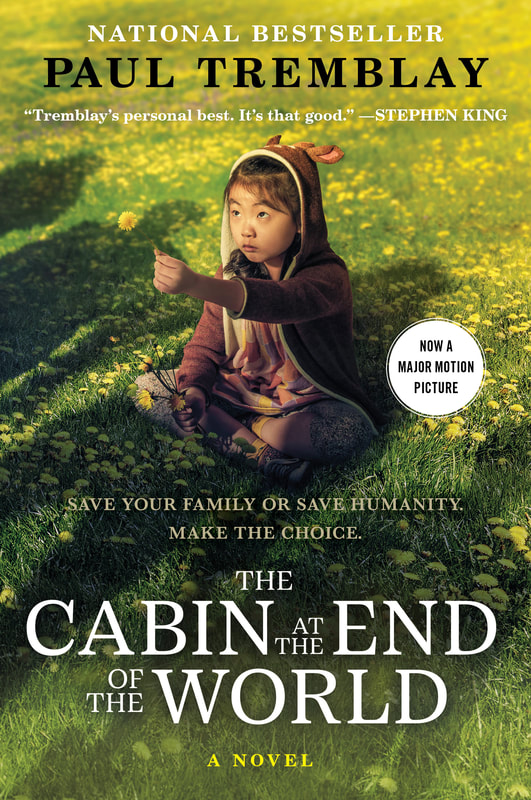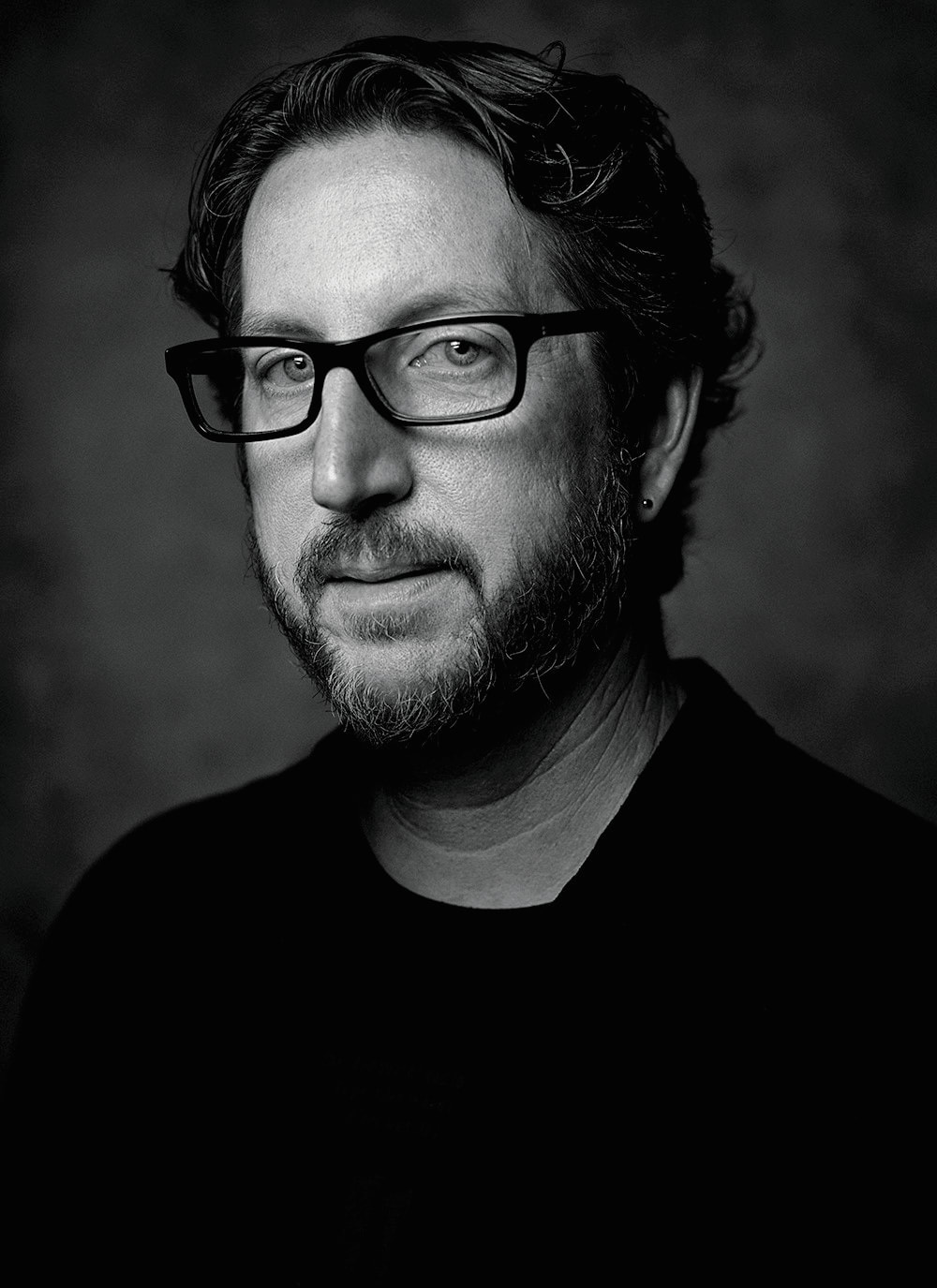WRITERS TELL ALL
An Interview with Paul Tremblay, Bestselling Horror Author (KNOCK AT THE CABIN Out in Theaters Now!)2/9/2023  I got to sit down with Paul Tremblay, author of books like A Head Full of Ghosts and The Cabin at the End of the World, which is the basis for M. Night Shyamalan's Knock at the Cabin! Keep reading to see me pick his brain about what scares him, how to effectively scare people, and other, well, scary things. Matthew Turbeville: Mr. Tremblay, I’m really excited to talk with you about your writing and the launch of the new M. Night Shyamalan movie, Knock at the Cabin, based on your brilliant novel The Cabin at the End of the World. What does it feel like to have a book of yours realized as a film, and by such a director, and as such an event? Paul Tremblay: Thank you for having me here, Matthew. Of course, it’s incredibly exciting. I’m still wrapping my head around the whole thing. The most fun part has been celebrating with family and friends, and hearing from former students and classmates and such. MT: I love your work so much. The first book I read of yours was Disappearance at Devil’s Rock, which left me extremely unsettled and delighted all at once. It’s a brilliant novel about a mother whose son disappears, and it gave me shivers for days. A lot of your work centers around families and the horrors that can unravel them—from this, to Cabin,to A Head Full of Ghosts. Why do you think writing about families in horror is so significant, and what draws you to a group of people as a writer enough to draft a whole novel around them? PT: Thank you for the kind words, Matthew. I appreciate it! The three novels you mentioned each feature a family under duress (to put it mildly) by outside forces and possibly supernatural forces. I like think about those three novels, not as a trilogy, but as fitting into a thematic arc, or thematic similarity, each involving supernatural ambiguity. I started getting serious about writing around the time when I first became a parent, and I found that parents/families/kids and my anxieties were something I continually came back to in my fiction. So I figured why not lean into those obsessions with my novels. As it relates to horror, I think the use of families is maybe a little easy insofar as you tend to get instant empathy for those characters from the readers. I’m less interested in that than I am the experience of those relationships and what stresses do to them, coupled with the ambiguity thing, which I think/hope parallels our 21st century experience, our bifurcated lives (our online/virtual selves and our ‘real’ selves). I typically come up with a scenario or what if first and then I try to figure out who is in that story, who is that story about. MT: What scares you? As a writer, what do you look for in a novel to create a truly terrifying experience for the reader, and how do you go about doing that? Do you have any advice for up-and-coming horror and thriller writers? PT: The Hulk in the first Avengers movie says his secret is that he’s always angry. That’s me, except, well, I’m always scared. My fears help shape the what ifs and concepts I want to explore. I start with what moves me emotionally; what do I want to read and know more about. And then I hope that there are other readers out there like me who have similar interests. I honestly don’t think or worry about something being scary or not. I think that’s putting too much pressure on the story to maybe be something it’s not. Plus, what’s scary is so subjective. I don’t think I can control whether a story is scary or not. I focus more, again, on serving the story while hopefully moving the reader emotionally, of perhaps disturbing them or leaving them with a sense of dread, of there something being just slightly (or greatly) wrong or off. If that equates to a scare, great! MT: Who are the authors who inspire you and scare you? What books do you come to again and again in your writing and reading life, and what do you recommend to readers who might want to read some of the work which informed you as a writer? PT: There are so many writers who inspire me. I didn’t come to reading for pleasure (blame math) until later in life than most people, certainly most writers. In my early 20’s stories and books from Joyce Carol Oates, Stephen King, Clive Barker, Shirley Jackson helped set me on the path of reading. My most reread books are SlaughterHouse Five by Kurt Vonnegut and We Have Always Lived in the Castle by Shirley Jackson. Fast-forward to the last five to ten years and there are so many excellent writers producing challenging and terrifying horror fiction and I’m afraid I’ll leave some people off but to name a few: Stephen Graham Jones, Mariana Enriquez, John Langan, Laird Barron, Nadia Bulkin, Sarah Langan, Victor LaValle, Kelly Link, Grady Hendrix, Eric LaRocca…I could go on and on. You can’t go wrong with any of those writers. MT: What is your writing work schedule like? I’m always interested in how professional writers structure their days. Do you have any habits, methods, or schedules you use to drive your writing on a day-to-day basis? PT: I’m currently on sabbatical from teaching, so this is my first academic year that I’m not in a classroom. For the moment, my schedule is writing in the morning for a few hours, then some exercise and lunch, then reading/editing in the afternoon (or, I’ll admit, slacking off in the afternoon too), and I mix in answering emails and all that other ancillary stuff. When I was teaching, the schedule wasn’t as regimented. It was about trying to steal an hour here or there. Sometimes that happened at school and I’d use a free period here and there. Usually, during school days, I wrote at night when my own kids were settled or doing homework, and I would work in the morning on days off. No habits or rituals otherwise. I didn’t have time for them. Have laptop and earphones will travel…or write? MT: I love how a lot of your writing deals with the horrors of human beings and human nature, on top of possible supernatural and preternatural elements. What is so scary about human beings as opposed to actual monsters? In your own experience, what are you more frightened by? PT: Humans are by far scarier; the violence and atrocities we’re not only capable of, but have more than ably demonstrated throughout history. In fiction, I remain fascinated in the choices and decisions characters make, particularly when confronted by a horror: what decisions will they make now? how do they live through this? how does anyone live through this? I think horror is equipped to get at those questions in really interesting ways. That said, I’m not above being terrified of the creaking house at night, and what might be hiding under my bed, what lives in the limnal spaces. MT: What are you working on now? Will we see more short stories from you, or another novel next? PT: On July 11, 2023, my short story collection The Beast You Are will be published. It has a loose theme of monsters. Not every story has a monster (supernatural or human) but most do. The book includes an original novella which features a giant monster and anthropomorphic animals. It’s fun, I promise! I just completed a rough draft of a novel called Horror Movie: a novel, and universal willing, will be published in mid-2024. That’s fun too, but really grim. MT: Paul, thank you so much for allowing me to pick your brain. I’m fascinated by your novels and the worlds you create, and I can’t wait to see this movie, too! Please feel free to stop by any time in the future, and thank you so much!
0 Comments
Leave a Reply. |
AuthorMatthew Turbeville Archives
June 2023
Categories |

 RSS Feed
RSS Feed
